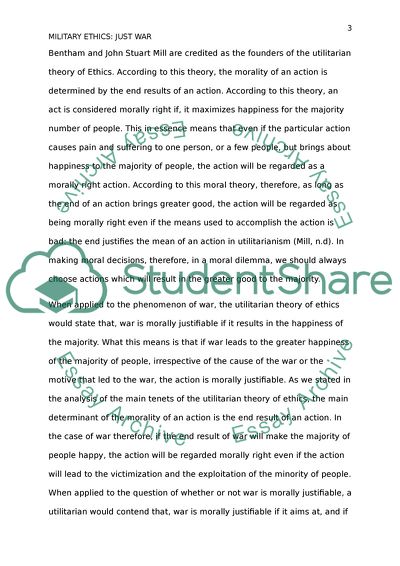Cite this document
(The Ethical Justification of War Case Study Example | Topics and Well Written Essays - 1500 words, n.d.)
The Ethical Justification of War Case Study Example | Topics and Well Written Essays - 1500 words. https://studentshare.org/military/1820549-just-warmilitary-ethics
The Ethical Justification of War Case Study Example | Topics and Well Written Essays - 1500 words. https://studentshare.org/military/1820549-just-warmilitary-ethics
(The Ethical Justification of War Case Study Example | Topics and Well Written Essays - 1500 Words)
The Ethical Justification of War Case Study Example | Topics and Well Written Essays - 1500 Words. https://studentshare.org/military/1820549-just-warmilitary-ethics.
The Ethical Justification of War Case Study Example | Topics and Well Written Essays - 1500 Words. https://studentshare.org/military/1820549-just-warmilitary-ethics.
“The Ethical Justification of War Case Study Example | Topics and Well Written Essays - 1500 Words”. https://studentshare.org/military/1820549-just-warmilitary-ethics.


